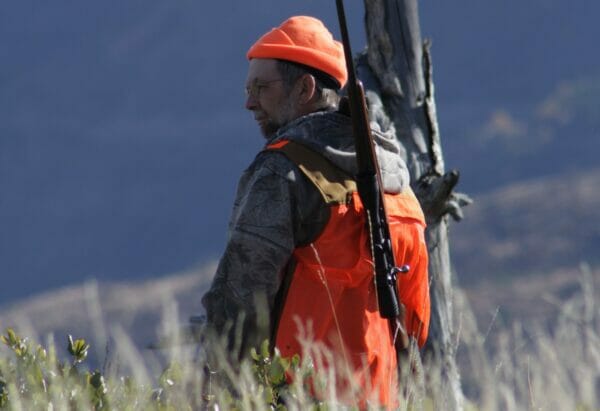
U.S.A. — A group representing tens of thousands of Washington State hunters, anglers, and trappers have filed a lawsuit against Gov. Jay Inslee and five members of the state Fish & Wildlife Commission, alleging their appointments were made without the mandated consultation of hunter and angler groups, and that commissioners are not acting in their interest as required by law.
In addition to Democrat Gov. Inslee, a gun control proponent who announced earlier this year he will not seek another term, the lawsuit names Commissioners Barbara Baker, John Lehmkuhl, Lorna Smith, Melanie Rowland and Tim Ragen as defendants. Inslee signed legislation banning so-called “assault weapons” in April, for which the state was promptly sued in federal court by the Second Amendment Foundation, National Shooting Sports Foundation, Firearms Policy Coalition and others in two different actions. Inslee is not a defendant in those lawsuits.
The lawsuit was filed in Thurston County Superior Court by Washingtonians for Wildlife Conservation (WWC), which represents some 52,000 members, according to President Mark Pidgeon, who spoke with AmmoLand News recently.
“We were thinking years ago about filing a lawsuit,” said Pidgeon. “We feel hunters weren’t being represented in this state for years.”
The WWC is represented in the lawsuit by attorneys Callie A. Castillo and Daniel Miller, both with offices at Lane Powell PC in Seattle.
It is not the first time sportsmen and women have gone to court. Earlier this year, the Sportsmen’s Alliance Foundation filed a lawsuit to keep Smith off of the commission. In a press release at the time, Todd Adkins, vice president of government affairs for the Alliance stated, “Sadly, this violation is but one example of how off-the-rails the WFWC operates under the Inslee administration. We view this lawsuit as the initial step of a long but important process to bring sanity and decency back to wildlife decision-making in Washington. It all starts here, but trust me, it won’t end here. The animal extremists are going to see a lot of the same in the coming weeks and months.”
In its press release, the Alliance asserted, “Smith was the driving force behind the canceling of the spring black bear hunt and has pressed for other initiatives to destabilize traditional management approaches and systems in the state.”
The Department of Fish & Wildlife had allowed spring bear hunting for generations, as a management tool that helped reduce forest depredation and predation of other game populations in the spring, and provided a seasonal hunting opportunity.
It appears to be no secret that the Fish & Wildlife agency is in the throes of changing its management priorities, as explained in this May 31 Stateline article.
In the WWC lawsuit, Smith is described as “a retired director of Western Wildlife Outreach, an environmentalist group with a focus on the preservation of large predators.”
The other commissioners also draw criticism for providing no representation for hunters or anglers on the wildlife body.
Smith’s presence on the commission was challenged under a state statute which prohibits commission members from serving in any other government capacity. But Smith is a member of the Jefferson County Planning Commission. Her term is set to expire in March 2026.
Elsewhere in that statute, it says, “In making these appointments, the governor shall seek to maintain a balance reflecting all aspects of fish and wildlife, including representation recommended by organized groups representing sportfishers, commercial fishers, hunters, private landowners, and environmentalists.”
“The Commission contains a single member employed or with a work history in agriculture or ranching,” the WWC lawsuit contends. “The Commission contains no representatives of organized sportspersons (or) no current or former commercial fishers.” There are also no representatives from recreational fishing groups.
“The Governor has never solicited the input of organized sportspersons or recreational fishers in making appointments to the Commission,” the lawsuit further asserts.
Pidgeon made the same allegation in his telephone interview.
Pidgeon asserted there are at least “three anti-hunters” on the commission, and that the current commission also contains “radical environmentalists.”
“At her confirmation hearing,” the WWC lawsuit states, “Commissioner Baker noted that the department needed to prioritize managing non-consumptive users of the State’s resources and asked ‘how do we managed the conflicts between them and the wildlife and the habitat and the traditional people who are out there…shooting things or fishing?”
“No sportsperson would ever describe harvesting game as ‘shooting things’,” the lawsuit narrative adds.
The lawsuit further alleged that during his confirmation hearing, Lehmkuhl “discussed the termination of the spring bear hunt…describing it as one of several ‘sticker issues that have to do with values,’ noting that the individuals that voted to end Washington’s spring bear hunt did so because ‘we don’t think that sport hunting is a proper thing to do for bears in the springtime.’”
Writing recently on his blog at Northwest Sportsman magazine, Editor Andy Walgamott observed, “In this hook-and-bullet reporter’s recollection, and outside of the ever-litigious Wild Fish Conservancy, it didn’t used to be like this with the Washington Fish and Wildlife Commission. In the not too terribly distant past, a lot of decisions members made were unanimous and things were far, far less acrimonious.”
That recollection doesn’t extend back to the 1980s when Washington hunters and anglers created the Sportsmen’s Rights Coalition, spearheaded by members of the Puget Sound Anglers fishing group following a suggestion in an editorial appearing in the now-defunct Fishing & Hunting News. At one point, the group organized a protest that drew some 3,000 angry sportsmen and women to the Capitol steps in Olympia, where there was also representation from the Citizens Committee for the Right to Keep and Bear Arms, and the National Rifle Association.
At the time, hunters and anglers were upset over what they saw as declining hunting and fishing opportunities. Times may have changed, but the sentiments of consumptive outdoors users haven’t.
Elsewhere in the WWC lawsuit, the organization’s position is made clear: “Contrary to the statute’s command for the Commission to facilitate and expand hunting and fishing to maximum extent possible, consistent with the Department’s duty to conserve wildlife and the natural resources of the State for future generations, the Governor appointed a controlling majority of Commissioners who have stated that their priority is non-consumptive use and who have acknowledged hostility to expanding consumptive, and who have cited ‘values’ not found in the statute as justifying disregarding clear statutory commands, and the Department’s own recommendations to restrict hunting in Washington.”
About Dave Workman
Dave Workman is a senior editor at TheGunMag.com and Liberty Park Press, author of multiple books on the Right to Keep & Bear Arms, and formerly an NRA-certified firearms instructor.
